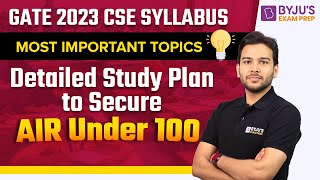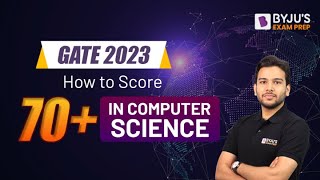In this article, find GATE study material for CSE (Computer Science & Engineering). Computer Science & Engineering is one stream that is an interesting combination of logic and core technical topics. Candidates who are going to appear for the GATE CSE paper need to prepare with full accuracy as the examination level is high.
Candidates who are looking for the GATE notes for CSE can refer to this article. We have covered all the relevant topics of CSE in the below table, and students can directly redirect to that particular topic.
Table of Contents
- GATE CSE Study Material Related Videos
- GATE Notes For CSE – Important Topics
- Important Difference Between Articles
- Important Full Form Articles
GATE CSE Study Material Related Videos:


The following study material for the computer science stream is helpful for the aspirants and will help them crack the GATE exam. Before proceeding toward the GATE notes for CSE, it is recommended to check the GATE Syllabus For CSE in depth.
Now explore the GATE study material for CSE based on essential topics.
GATE Notes For CSE – Important Topics
1. Digital Logic Study Material
2. Computer Organization and Architecture Notes
3. Programming and Data Structures Notes
Data Structure Notes
Programming Notes
4. Algorithms Notes
5. Theory of Computation Notes
6. Compiler Design Notes
7. Operating System Notes
8. Database Study Material
9. Computer Networks Notes
Note: More topic-wise notes soon on this page.
GATE Notes For CSE – Important Difference Between Articles:
Visit GATE Concept Difference Between, for more differences between articles.
GATE Notes For CSE – Important Full Form Articles:
Visit GATE Full Form, for more full form-related articles.
As per the GATE 2023 syllabus for computer science engineering, the topics are split into different sections. To score good marks, it is recommended to cover all the important topics and sub-topics given in the above table. This GATE study material for CSE will surely help you understand these core notions in an effective way, and this way, you can do great in the examination also.
Benefits of GATE CSE Notes
When it comes to preparing for the GATE CSE examination, study material plays an important role. We can say that perfect study material can help you reach a perfect preparation plan. GATE computer science discipline is one of the most logical and conceptual disciplines. Students who wish to appear in the GATE examination through this paper need to cover all the core technical and relevant topics. They can take the help of GATE notes for CSE to understand the syllabus in a better way.
For the convenience of the students, we have covered the notes for each topic here. GATE aspirants can take advantage of these notes.
Keep learning and stay tuned to get the latest updates on GATE Exam along with GATE Eligibility Criteria, GATE 2023, GATE Admit Card, GATE CSE Question Paper, and more.
Comments